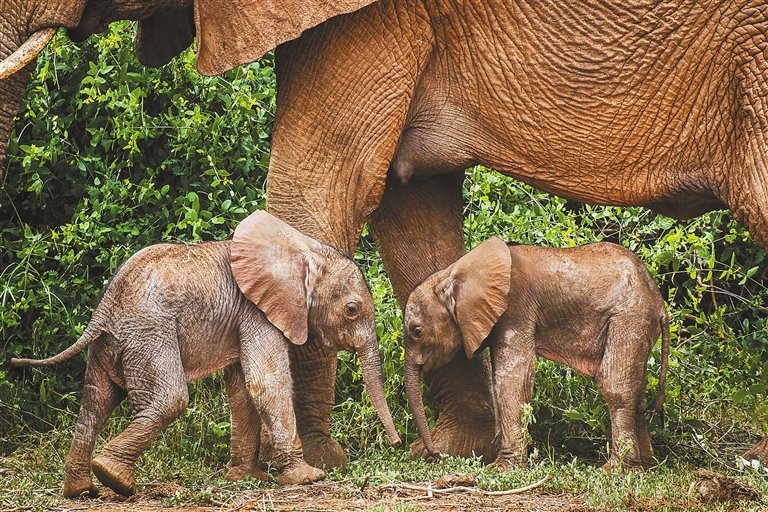
CONSERVATION group Save the Elephants says an elephant in Kenya has given birth to twins. The twins — one male and one female — were born to a mother named Bora. They were first spotted by lucky tourist guides on a safari drive alast week in Samburu reserve in northern Kenya. Videos show the days-old newborns getting accustomed to their savannah surroundings with their doting mother and an older sibling, Bora’s first calf, born in 2017. African elephants have the largest gestation period of any living mammal, carrying their young for nearly 22 months, and gives birth roughly every four years. According to Save the Elephants, twins are rarely encountered in elephant populations and form about only 1 percent of births. However, elephant twins do not often fare so well. The last pair of twins born in Samburu, in 2006, failed to survive more than a few days. “Quite often the mothers don’t have enough milk to support two calves,” Douglas-Hamilton, the charity’s founder, said. “The next few days will be touch-and-go for the new twins, but we all have our fingers crossed for their survival.” There are about 36,280 elephants in Kenya, according to the country’s first-ever national wildlife census conducted last year. That figure represented a 12-percent increase in population numbers recorded in 2014 when killing for ivory was higher. The International Union for Conservation of Nature warned last year that poaching and habitat destruction, particularly due to land conversion for agriculture, had had a devastating effect on elephant numbers in Africa as a whole. (SD-Agencies) | 
